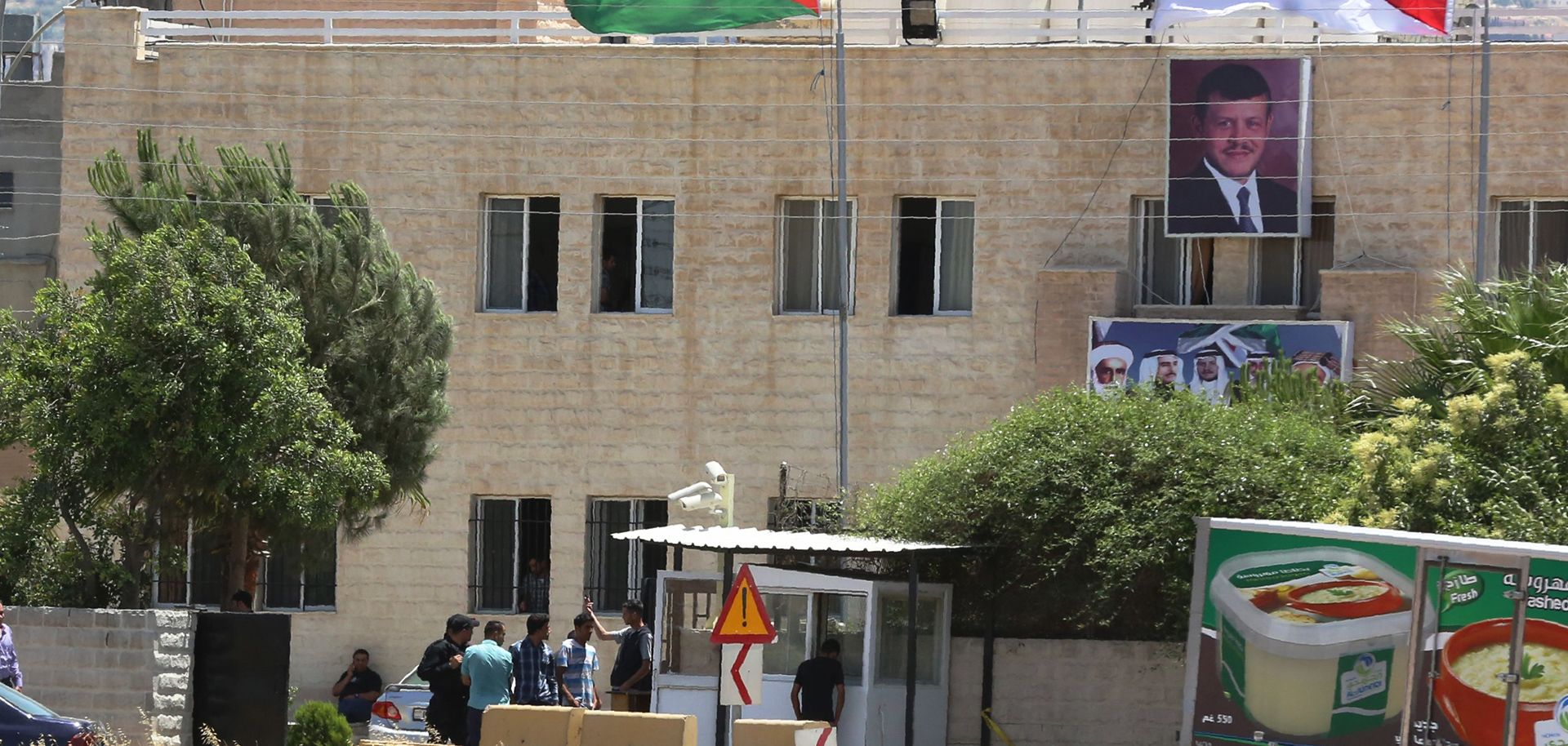ASSESSMENTS
A Shaken Calm in Jordan
Jun 8, 2016 | 09:00 GMT

(STRINGER/AFP/Getty Images)
Summary
In a tumultuous region, Jordan has managed to remain a bastion of stability, largely through the deft maneuvering of its leader, King Abdullah II. A longtime Western ally, the country has provided a haven for refugees from numerous regional conflicts. But a recent attack has shaken this calm. Early on the morning of June 6, an unspecified number of gunmen carrying semi-automatic weapons opened fire at a security office in the Baqaa refugee camp — located just 20 kilometers (12 miles) from Jordan's capital, Amman — killing five personnel from the Jordanian General Intelligence Directorate, including three noncommissioned officers.
Rushing to describe this as an isolated incident, Jordanian security forces have already arrested one suspect, and no militant group has yet claimed responsibility. Regardless of the perpetrator, however, the attack hints at the tensions simmering just below the surface in Jordanian society. A significant portion of Jordan's population subscribes to Islamist political beliefs. To date, Amman has prevented many individuals from joining the Islamic State or other jihadist groups. But Jordan is finding it difficult to channel this sentiment into legitimate political parties while mitigating the destabilizing effects of groups such as the Muslim Brotherhood. As parliamentary elections approach, the Jordanian government hopes to benefit from its recent efforts to strengthen moderate Muslim Brotherhood factions to absorb Islamist sentiment and prevent incidents like the Baqaa attack from becoming a regular occurrence.
Proceed to sign up
Register NowAlready have an account?
Sign In